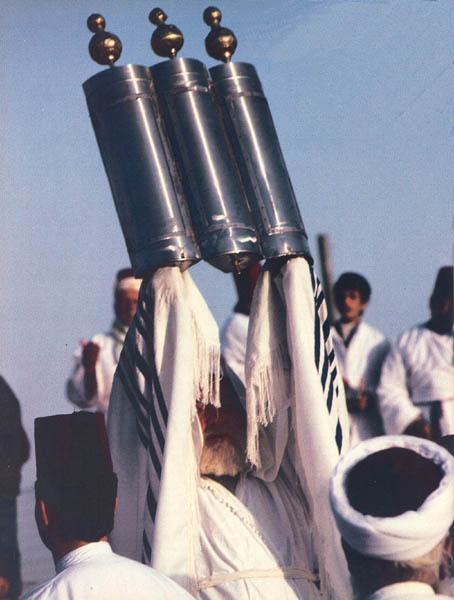Image Details

Reinhard Pummer
To bless the assembly, a Samaritan priest raises and waves a Torah scroll in a ceremony conducted at each of eight stations during a pilgrimage up Mt. Gerizim. A Jewish sect dating perhaps as far back as the fourth century B.C.E., the Samaritans claim to be the true “guardians of the Law” of Moses. Central to their beliefs is a variant text of the Pentateuch (the five books of Moses) that they regard as authoritative, known to scholars as the Samaritan Pentateuch. The oldest exemplar of the Samaritan Pentateuch is the so-called Abisha scroll, which the Samaritans believe was written some 3,000 years ago by Abisha, great-grandson of Aaron (1 Chronicles 6:50). The Samaritan Pentateuch differs most importantly from the Masoretic, or authoritative Jewish, text in its identification of Mt. Gerizim as the place that God has chosen as his holy mountain (instead of Jerusalem, the place that God will choose). The Samaritans therefore built their temple (subsequently destroyed) on Mt. Gerizim, and still conduct a pilgrimage up the mountain three times a year, during their celebrations of Sukkoth (the Feast of Tabernacles), Pesach (Passover) and Shavuot.
